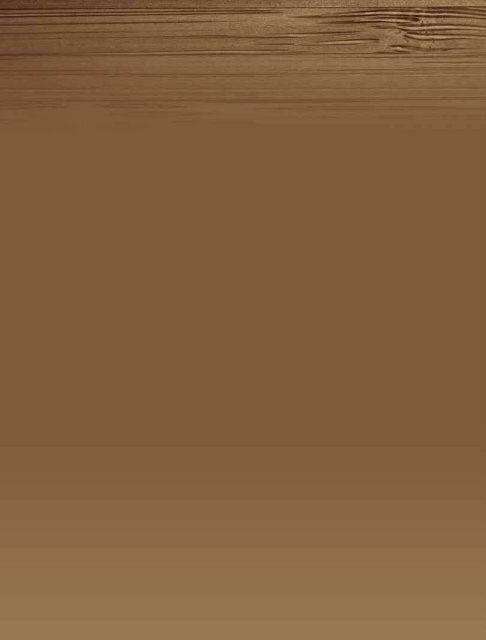Create successful ePaper yourself
Turn your PDF publications into a flip-book with our unique Google optimized e-Paper software.
scholars would have to travelgreat distances to study under anaccomplished teacher or obtain arare text. Today, some of the world’sleading universities offer coursesonline for free and tens of thousandsof books can be instantlydownloaded and shared in digitalformat. This even extends to theIslamic sciences; almost all of themajor collections of Hadith havebeen digitised and made searchable.Yes, it has never been so easyto find and share information.So is knowledge just a Googlesearch away? An unfortunatefeature of our modern societiesis that we often mistake informationfor erudition and facts forknowledge, as if education isnothing more than the hoardingof data. Compare this to whatthe Qur’an says about knowledge:‘Only those of God’s servants whohave knowledge fear Him.’ (35:28).This verse provides a completelydifferent view of learning, in thatit draws an explicit connectionbetween having knowledge (‘ilm)and fearing God, suggesting thattrue knowledge is something thatinspires us to hold our Creator inawe. In other words, it has less todo with what you know and moreto do with the effect knowing hason you, the knower.By virtue of this, anything thatincreases a person’s awarenessof his Creator is knowledge – notjust traditionally “Islamic” subjects.And by the same token, someonecould conceivably have studiedevery verse in the Qur’an and everyword uttered by the Prophet (s) ,without ever attaining the slightestdegree of knowledge. If this seemshighly subjective, that’s because itis! As it is only through the agencyof the subject, the individual, thatknowledge can be actualised. Solong as knowledge is treated as anobject, as something external and“other” to the knower, it remainspotential knowledge. Only whenthat knowledge is internalisedso that it becomes part of theknower’s own being does it becomeactual knowledge. It is possibleto see whether or not we haveinternalised knowledge in this wayby looking at our own behaviourand attitudes. If we notice thatby learning something we havebecome more aware of God and -as a result of this awareness - beenmotivated to better ourselves bothas Muslims and human beings,then we have attained someknowledge. This is why the classicalscholars have said that thetrue purpose of knowledge (‘ilm) isaction (‘amal) and that acquiringknowledge without acting upon itis worthless. The Qur’an describes‘The example of those who werecharged with the Torah, thenfailed to carry it…’ – i.e. failed toact upon it – ‘…is that of an asscarrying books.’ (62: 5). And theProphet says: ‘Whoever increasesin knowledge, but not in guidance,has not increased with regards toGod except in distance [from him].’Therefore true knowledge – whichis knowledge of the Divine – shouldbe demonstrated in one’s actions.So far from abounding in knowledge,the modern world seemsparadoxically devoid of it. Asecular, materialist worldviewmeans that scholars see no underlyingunity beneath the manifolddisciplines and areas which theystudy, leading different fields oflearning to become increasinglyatomised and detached from oneanother, as well as detached fromtheir ultimate source. Moreover,the commodification of knowledgeunder capitalism meansthat education is subordinated toeconomic imperatives and - as aresult - knowledge is stripped ofits moral and qualitative aspects;it is reduced to something whichcan be bought or sold as readily asa pair of trainers; an inert object,alien and external to the knower.In other words, the modern worldhas the appearance of knowledgebut lacks its substance.But how to overcome this illusion?Perhaps we can draw inspirationfrom the story of Socrates, thefamous Greek philosopher, andthe Oracle of Delphi. Socrates’friend Chaerephon once asked theOracle if there was anyone wiserthan Socrates, to which the Oraclereplied that there was noone wiserthan him. Socrates thought thatthe Oracle could not possibly becorrect, since he knew that hehad no wisdom whatsoever. Sohe began to question the wisestpeople in Athens – statesmen,poets and artisans – in order torefute the Oracle’s claim. In doingso, he realised that while thesepeople claimed to be wise, noneof them in fact were. Paradoxically,this made him the wisest man inAthens because only he was awareof his own ignorance.In an era dominated by informationand technology, knowledgehas never been more precious ormore elusive. But if we are to goin search of wisdom, we must firstacknowledge our own ignorance,as we cannot pursue the substanceof knowledge if we still cling to theillusion of modernity. But if we areable to recognise the fundamentalunity – or tawhid – behind themultiplicity of various fields oflearning, to see all knowledge asbeing ultimately connected toknowledge of the Divine, and indoing so leave behind our ownpretentions to wisdom for the realthing, then we truly have undertakena great journey – one thatis certainly no less impressive thantravelling to China. •Alexander Khaleeli is aresearcher and student ofthe Islamic Seminaries. Hehas a BA and MA in Islamicstudies.Hawza Studies Programme2013 / 2014A Four-Year Study Programme leading to stage twoqualification of Major International Hawza StudiesThis course provides students with classical, authoritativeIslamic education and spiritual training within a modernframework of study.This is a unique course consists of studies in the fields of:• Arabic Language (Syntax and Morphology)• Qur’anic & Hadith Studies• Logic• Principles of Jurisprudence• Demonstrative Jurisprudence• Islamic Ethics• Islamic Philosophy• Islamic MysticismFor more information on the course and modules, please visit our Website: www.islamic-college.ac.ukor contact by telephone, fax or email the registry office:Tel: 020 8451 9993 | Fax: 020 8451 9994email: info@islamic-college.ac.ukThe Islamic College: 133 High Road, Willesden, London NW10 2SW14


